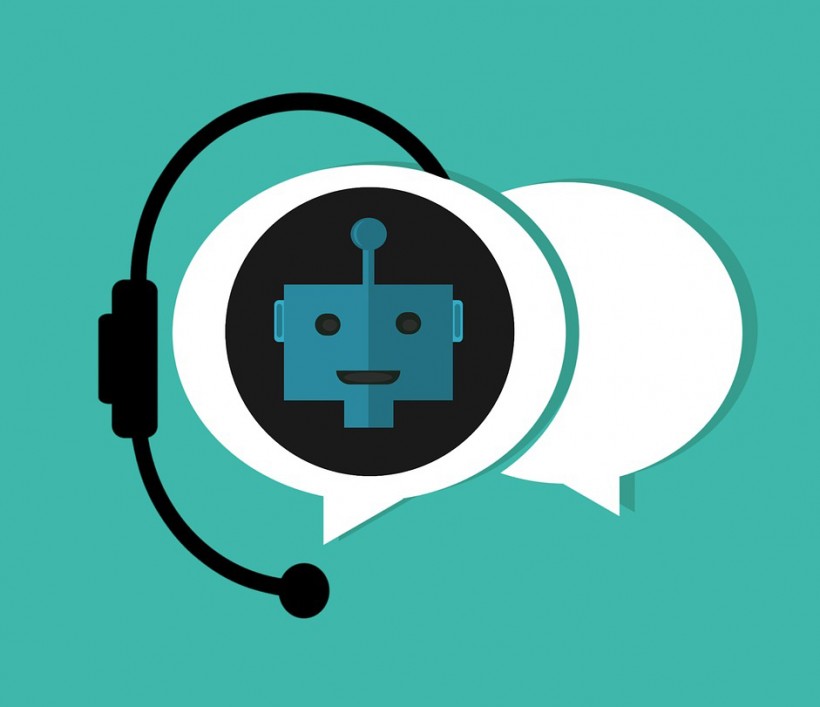Customer service chatbots have done much to streamline the process of resolving basic queries and answering our questions in a matter of seconds. But what about AI answering our calls? This rapidly expanding technology could lead to voice robots operating most - if not all - call centers within just a few years.

For those imagining a dispassionate robotic voice repeating the same phrase over and over, heads up: those days are gone. The technology behind voice robots is already sophisticated enough to convincingly imitate a natural interaction with a human, complete with adequate pauses, tone of voice, and comprehension of the entire context of the conversation. The ability of AI to hold a convincing conversation isn't even in the emerging tech category: Google demonstrated the full extent of a voice robot's skills two years ago, during the 2018's I/O developer conference.
Can robots provide a viable alternative to human operators on a large scale, though? Apparently so, as evidenced by a recent study conducted by the leading data processing and computing solutions provider Powerry, in collaboration with Neuro.net. Having consulted with customer service professionals and managers, the study found that over 60% of call center employees believe that AI operators can fulfil at least part of their responsibilities, while another 13% think AI could take over their jobs completely.
The implementation of voice robots in customer service and similar business settings isn't a hypothetical scenario - it's already happening. "At the moment, AI-based voice technologies are used in many companies, and soon the use of neural networks can become a widespread practice," says Abdumalik Mirakhmedov, Founder & CEO of Powerry. The 2020 study shows that a third of leading managers already use AI voice solutions in business, and another 37% have plans to implement the technology in the near future.
Although introducing highly sophisticated AI-operated solutions into customer support may seem like an unnecessarily costly venture, the long-term benefits far outweigh the initial cost and effort. Most importantly, using AI to answer calls streamlines the process for both parties. On the business end, the need for employee training procedures is eliminated, all while incurring lower operation costs compared with hiring traditional workforce capable of handling the same volume of calls. Meanwhile, callers do not have to wait to be connected to an operator: many of the currently available AI solutions can handle thousands of calls simultaneously.
As companies behind commercially available voice robots will point out, AI doesn't get tired - it can handle incoming calls 24/7 without making mistakes. For businesses operating large scale call centers, this means dramatically increasing the number of calls and services they can provide without the need for doubling or tripling the workforce and investing into larger premises and training. In fact, thanks to AI, call centers could operate with just a handful of employees when necessary - such as during crises like the COVID-19 pandemic.
Voice robots programmed with a customer support angle in mind are not only more cost-efficient than human operators - but they're also faster at resolving queries. Information that a person would have to look up on a computer, for instance, can be automatically retrieved by the AI in a fraction of a second. Interestingly, AI solutions can also present callers with offers and deals - voice robots can be programmed with appropriate sales and marketing techniques and effectively implement them during a call.
In light of these and other benefits, it's no wonder that the voice robot niche is rapidly growing. According to Nikolay Kravchuk, co-founder of Neuro.net, "The Conversational AI market is at an initial stage of development - in 2018, its volume amounted to $4.2 billion. We expect the market to grow at 30% per year over the next five years." The company co-founded by Mr. Kravchuk is one of the leading providers of AI solutions for handling calls, offering an easy to implement voice robot solution and a cloud platform for its management.
This market growth has been significantly spurred on by the COVID-19 pandemic. As Nikolay Kravchuk points out, "Studies have shown that 53% of managers and 64% of employees believe that the global quarantine experienced by mankind during the coronavirus pandemic will accelerate the process of digitalization of contact centers. Such happenings prove once again that many work processes can and should be transferred to Artificial Intelligence. We also hope that the routine tasks will soon be completely transferred to AI, and the use of people in such scenarios will be a thing of the past."
Many commercially available AI voice robots are already quite convincing, and the tech will only get more sophisticated as time goes on. So, next time you make a call to customer support, you may well find yourself talking to a robot... and not even noticing.









